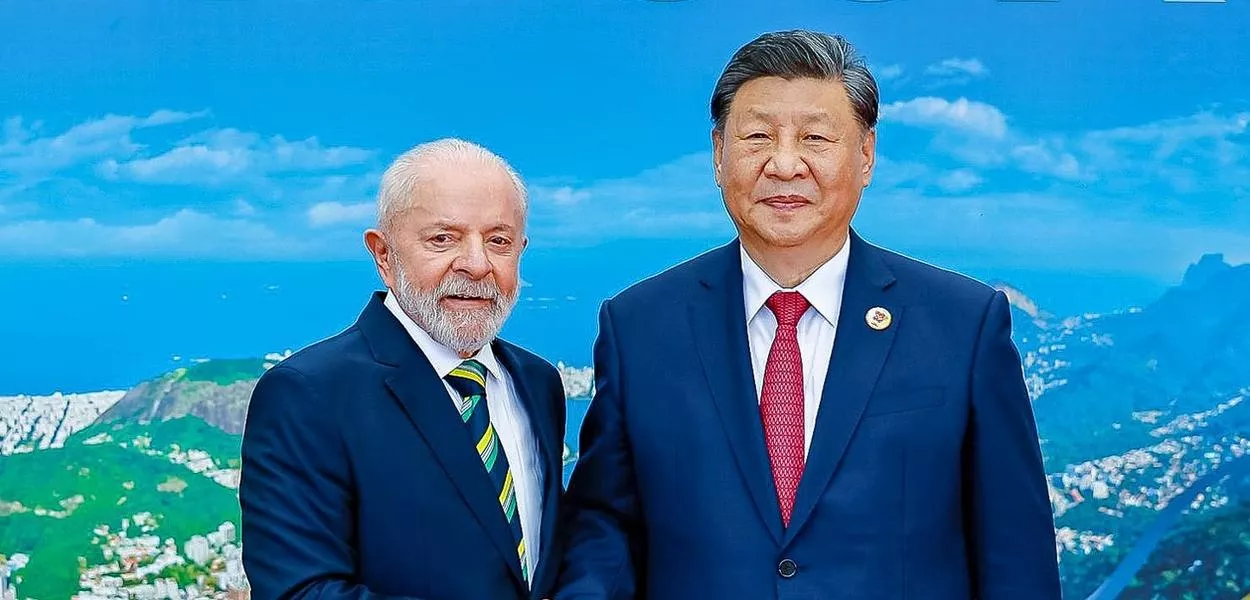
In a strategic move to strengthen economic ties without compromising geopolitical autonomy, Brazil and China today announced a new investment partnership, opting not to formally join the Belt and Road Initiative, also known as the Silk Road.
The announcement was made by the presidents Luiz Inácio Lula da Silva e Xi Jinping in Brasília, during a state visit by the Chinese leader.
The joint project, designed as an alternative to full adherence to the Chinese initiative, aims to encourage strategic investments in priority areas for Brazil, maintaining flexibility in national decisions.
Celso Amorim, special advisor to the Presidency, stated: “We want synergy. If to have synergy they have to call it Belt and Road, no problem. What matters are the projects that have this synergy.”
Since the launch of the Belt and Road Initiative in 2013, China has invested more than US$1 trillion in projects that connect global regions.
However, Brazil, together with Colombia and Paraguay, has remained distant from formal accession, concerned about possible interpretations of submission to external political norms and agreements that could contradict Brazilian legislation.
In the diplomatic scenario, the Brazilian decision was preceded by intense discussions about the implications of a closer alignment with China, especially in relation to dynamics with other powers such as the United States.
A Brazilian ambassador, who preferred to remain anonymous, commented: “The closer you get to China, the more you no longer have support in other corners. Brazil needs to calibrate its attitudes so as not to discredit itself with other countries.”
The partnership announced today envisages the execution of at least 50 bilateral projects, focusing on infrastructure, technology and artificial intelligence.
Highlights among the initiatives are the development of sustainable aviation fuel and the expansion of transport routes that further integrate Brazil with its South American neighbors.
Furthermore, China was proposed to create a fund to recover degraded pastures, reinforcing the Brazilian government’s environmental agenda.
Despite negotiations still pending, such as the sale of 20 Embraer aircraft to Chinese companies, the expectation is that this partnership will bring new investments and significantly boost bilateral relations.
In the sphere of international relations, Brazil’s position stands out for its effort to maintain a policy of non-alignment, seeking to balance its interactions with the great powers.
In contrast to North American concerns about the risks of Chinese investments, which include warnings about the potential “debt trap”, the Chinese Embassy in Brazil responded to the criticism by classifying it as “irresponsible”.
President Lula reiterated the importance of maintaining a cautious and balanced stance: “We will not turn a blind eye to the Silk Road”, highlighting the need for a thorough assessment of the risks and benefits involved. This announcement not only symbolizes a significant step in Brazil-China relations, but also reaffirms Brazil’s commitment to a prudent and strategic foreign policy.
Source: https://www.ocafezinho.com/2024/11/20/brasil-e-china-fecham-parceria-estrategica-que-envolve-a-nova-rota-da-seda/

